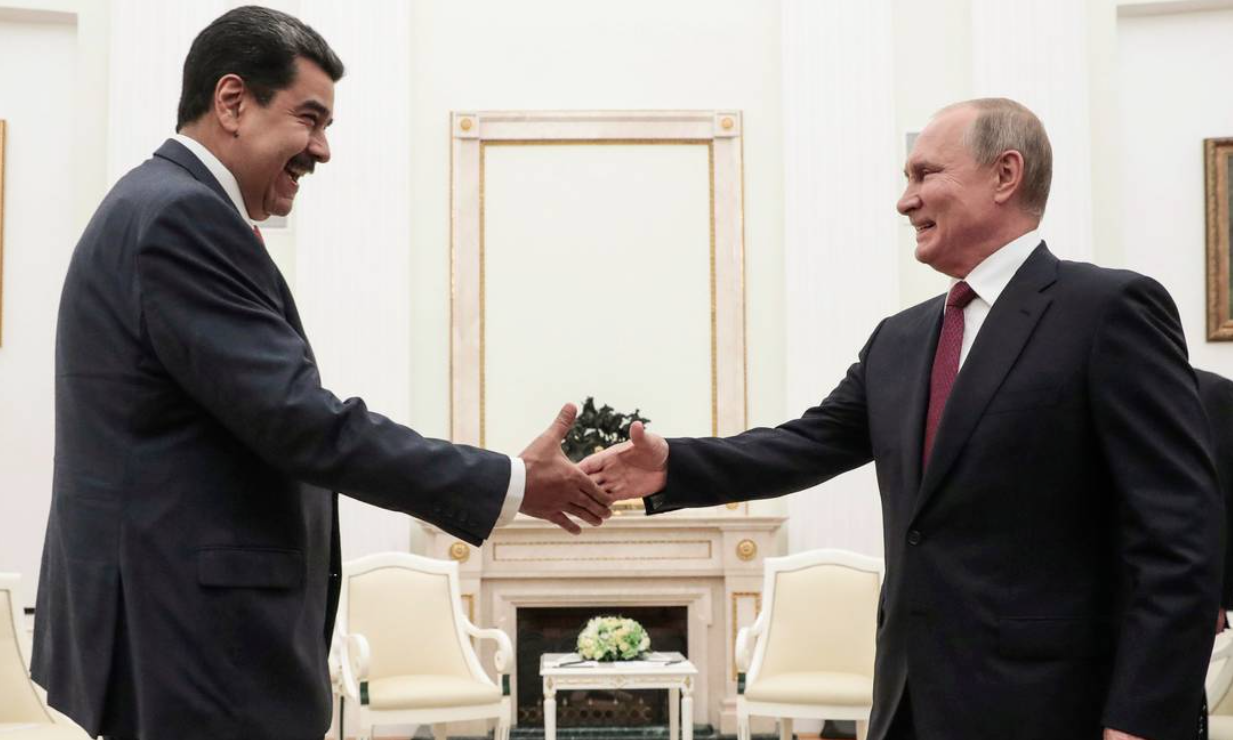Vladimir Putin has four key allies in Latin America. However, Russia’s relations with Cuba, Nicaragua, Venezuela, and Bolivia are not based on “ideology”, as is often believed, but on economic issues. There is no ideological affinity between these four countries and Putin. What they have in common are economic interests and geopolitical objectives, especially in terms of their positions vis-à-vis the United States.
In certain Latin American journalistic circles, Putin and his government are labeled as leftists. Nothing could be further from the truth. The President of Russia is a nationalist and conservative who longs for the power of the extinct Soviet Union. He does not long for communism or socialism, but for the power that the USSR held. Since he has been president, including the period in which he put Dmitry Medvedev in office, his goal has always been to transform the Russian Motherland into the first world power.
From Latin American partners…
Those who remain faithful custodians of the ideology that brought them to power, even with contradictions, which are usually the essence of any revolutionary political process, are the governments of Bolivia and Cuba.
In Nicaragua, on the other hand, Daniel Ortega’s regime does not retain a shred of the old ideals of Sandinismo. This government, which recently has dedicated itself to imprisoning former comrades-in-arms and anyone who opposes it, can hardly be considered the political-ideological heir of those who brought about the revolution in the 1980s.
In Venezuela, meanwhile, Chavism died even before the death of its leader and creator. Of that, today there is only an administration that survives, given that its enemies are more incoherent and as corrupt as they are. Nicolás Maduro and his regime only have an incoherent discourse left, after having buried 21st-century socialism without the slightest decorum.
Therefore, we cannot say that there is an ideological affinity between these four Latin American countries and Putin’s government. Then, why do these countries strongly support Russia in the conflict with Ukraine?
Cuba, Nicaragua, Venezuela, and Bolivia prioritize, above all, their position vis-à-vis the common enemy. And it is clear that the United States is in the lead. Its interventionist history continues to weigh heavily on these rulers, which is why they end up agreeing in their support for Putin.
In addition, these Latin American countries consider Russia and China as allies that could enable them to evade U.S. policies of economic and political control. Both giants have developed a policy of alliances, generally economic-financial, which have allowed them to consolidate themselves in the countries of the region. Thus, political support for Russia’s actions in Ukraine is related more to economic interests and financial needs than to supposedly ideological affinities.
Relations with Russia
Venezuela receives economic support from Russia, but, above all, it counts on Putin’s willingness to provide military aid, something that Maduro and his supporters see very favorably in order to keep the United States at bay.
Considering Nicaragua, the Ortega regime is trapped in the U.S. encirclement, which, however, has made no effort to remove the Ortega-Murillo couple, perhaps to avoid a new wave of immigrants. In the meantime, in order not to irritate the White House any further, a little more than a year ago, Daniel Ortega denied asylum to the Honduran Juan Orlando Hernández, since it is not the same to give refuge to a former president accused of corruption than to a former president classified as a drug trafficker by Washington.
Nonetheless, Russia’s help is helpful for the Ortega-Murillo couple both economically, financially, and politically. Russia has several investments in Nicaragua that are real lifelines for the regime. In fact, the only Russian embassy in Central America is in Managua.
As for Cuba, it is known that it makes a cult of secrecy. It is not easy to know for sure what investments Russia has on the island, but there is no doubt they are many and varied. For Russia, the Cuban regime, located only 90 miles off the coast of Florida, is an important pressure card, just as it was for the USSR during the Cold War.
Finally, although the Bolivian government has no ideological affinity with Putin’s Russia, its alliance with Moscow has brought advantages to the country in the economic-financial sector and especially in the field of international relations, where Russia has shown solidarity with Bolivia’s demands.
In short, we can see that there is no ideological identification between these four countries and Putin. What there is, however, is a political alignment that unites them without hesitation.
*Translated from Spanish by Janaína Ruviaro da Silva











